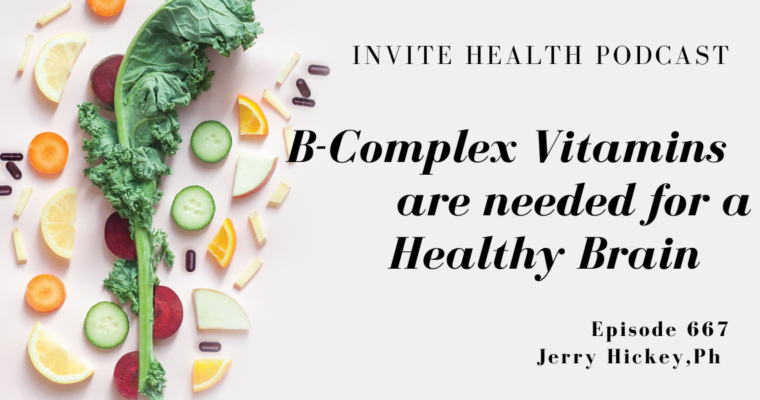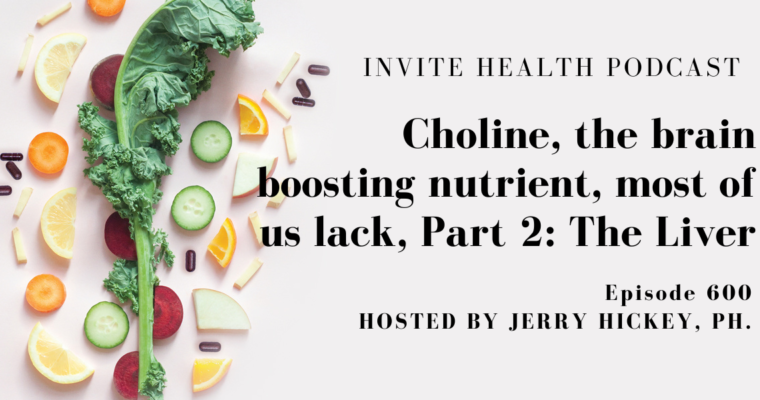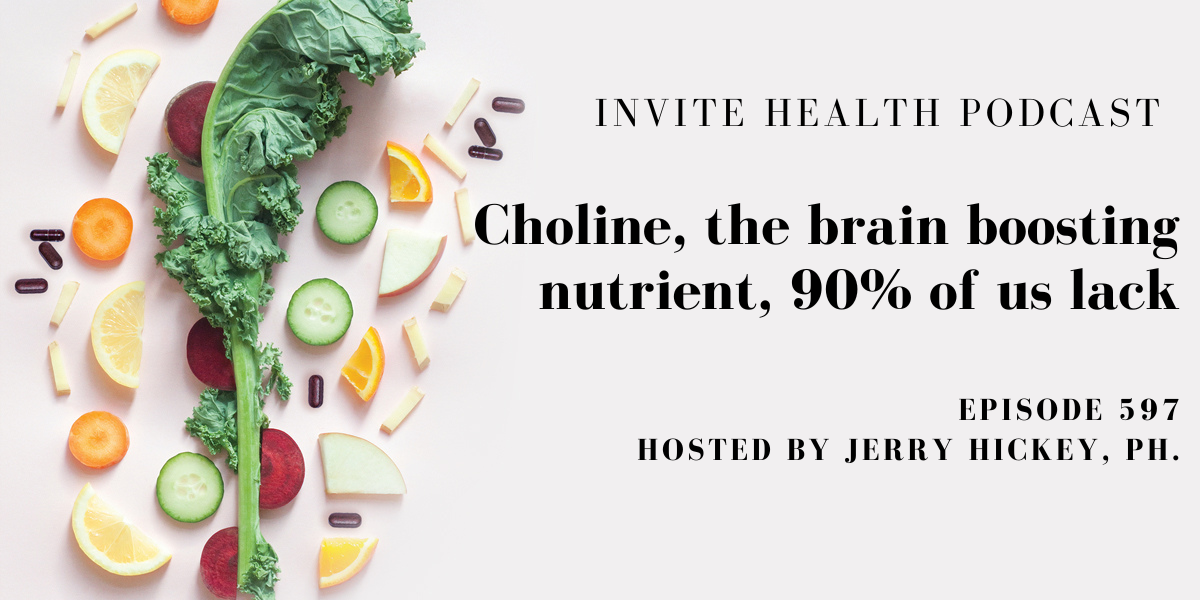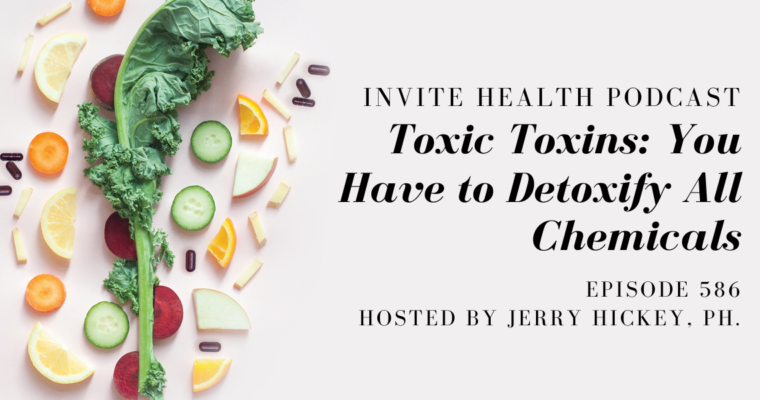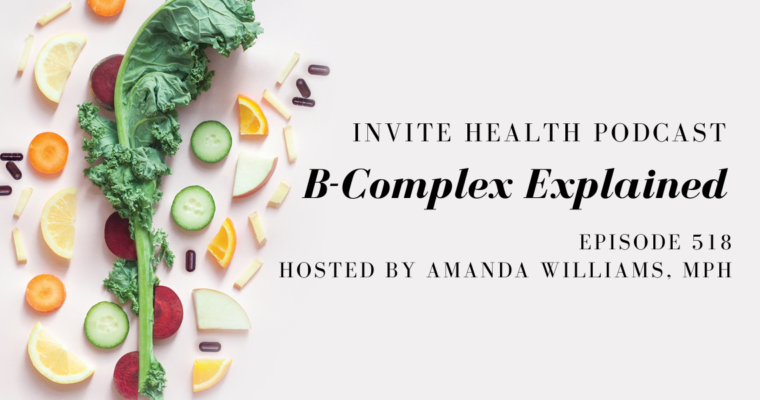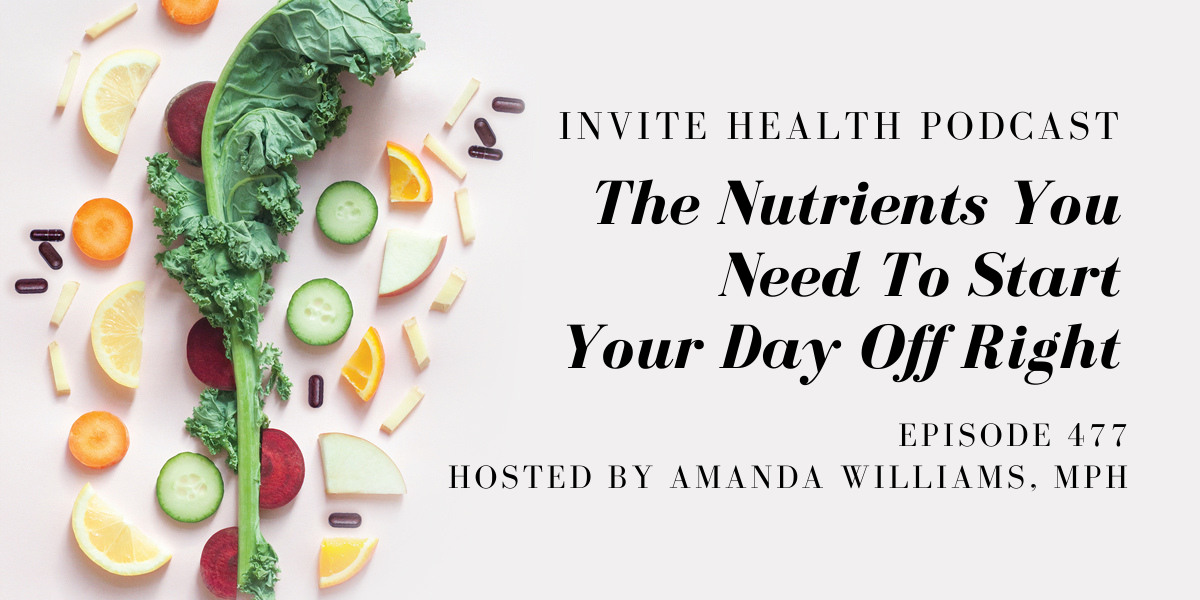Subscribe Today!
Please see below for a complete transcript of this episode.
CHOLINE, THE BRAIN BOOSTING NUTRIENT,90% OF US LACK- INVITEⓇ HEALTH PODCAST, EPISODE 597
Hosted by Jerry Hickey, Ph.

*Intro Music*
InViteⓇ Health Podcast Intro: [00:00:04] Welcome to the InViteⓇ Health Podcast, where our degreed health care professionals are excited to offer you the most important health and wellness information you need to make informed choices about your health. You can learn more about the products discussed in each of these episodes and all that Invitehealth has to offer, at www.invitehealth.com/podcast. First time customers can use promo code, podcast at checkout for an additional 15% off your first purchase. Let’s get started.† [00:00:34]
Jerry Hickey, Ph: [00:00:42] It’s rather amazing to me, there’s a nutrient needed for your muscles to function, and that includes your heart muscle, for your nerves to be healthy, for all sorts of functions in the brain, creating neurotransmitters for your brain to function normally, for your mood, for your memory, even repairing your memory, not just for your memory to function on a day to day basis, but for repairing your memory, for learning, for problem solving, for focus and paying attention, for keeping your liver healthy, keeping your brain and nerves healthy, even at the insulation on your nerves, for repairing your memory, even likely reducing your risk of dementia, including Alzheimer’s disease. And most of us are not getting enough of it, and nobody truly seems to be addressing this. The nutrient also helps prevent birth defects. And in fact, there’s evidence that a mother who gets a little bit additional of this nutrient, the baby’s brain develops better. Now, according to the National Institutes of Health, 90% of all American adults, and, also 90% of children doesn’t consume enough of this vitamin like, but, essential nutrient. So it’s like a vitamin, it’s not exactly a vitamin. It’s essential, meaning you don’t make it. You have to get it from either food or a supplement. And it’s called choline. It’s nominally grouped in with the B vitamins in your multivitamin. So welcome to my episode, Choline, the brain boosting nutrient, 90% of us are not consuming. My name’s Jerry Hickey, I’m a nutritional pharmacist. You can find all of the Invite podcast episodes wherever you listen to podcast episodes for free. It’s for free. Or just go to, invitehealth.com/podcast. Please review, and leave us uh, please review and subscribe. You can also find it at Facebook, Twitter and Instagram at InviteHealth. So let’s get going with this. This is important stuff. Choline is, becomes more important when you’re pregnant because you need it to prevent neural tubular defects. You need it for brain development. But at any stage in your life, lacking Choline, causes deficits and your brain function and affects your memory and brain health. But lacking it also clogs your liver, with fats, more on this later. But first, let’s talk about the brain. Lacking choline leads to nonalcoholic fatty liver disease and Steatohepatitis. Lacking choline causes DNA damage. And as you know, DNA damage, if it goes down, the wrong pathway increases your risk of cancer.† [00:03:37]
[00:03:39] Without choline, you have poor lymphocyte function. And lymphocytes are important for fighting off infections and guiding your immune system. And here’s where we go today, poor brain function, with an increased risk of memory loss. So we’re really going to be concerned today with brain health and memory. And if we can get to it, if there’s enough time, we’ll do a liver health. Otherwise we’ll have to do a second episode on liver health. But don’t shortchange that, because lacking choline leads to nonalcoholic fatty liver disease, you don’t need an ounce of alcohol that cause this, get clogged livers. It’s very common in overweight and obese people and diabetics and people with high levels of triglycerides, a type of blood fat. And it can lead to spontaneous liver cancer. It can lead to liver failure, cirrhosis. So it’s an important thing to address. It’s also a very safe nutrient. I’ll cover the recommended intakes and sources, etc., later in the episode.† [00:04:39]
ICYMI: PHOSPHATIDYLSERINE FOR MEMORY AND BRAIN HEALTH – INVITE HEALTH PODCAST, EPISODE 329>>LISTEN NOW!
[00:04:41] So let’s look at the brain. Like I said, it’s University of North Carolina at Chapel Hill. They do a lot of great research down there. That’s the American Journal of Clinical Nutrition. If you’re choline intake is low, your homocysteine level in your blood increases. Now, homocysteine is a byproduct of protein metabolism and there are normal safe levels in the blood. But when it’s elevated, it can become dangerous. It could become dangerous for the heart if it’s in conjunction with other cardiovascular risk factors, such as, diabetes or super high triglycerides, or elevated bad cholesterol, things like that, or if you smoke. So in and of itself, it doesn’t seem, from what I’ve read, it doesn’t seem to clog the heart or the arteries. But, oh, God. And in of itself, it doesn’t seem to clog the heart or the arteries. It’s when it’s in conjunction with other risk factors that it becomes dangerous. But on its own, it seems to be terrible for the brain. I’ve read a number of studies where people have elevated homocysteine, lacking other risk factors, had an increased risk of memory loss, depression, cognitive function problems, even Alzheimer’s disease. So it’s a concern. So, in the University of North Carolina, Chapel Hill, they found if choline is low, homocysteine goes up and it causes inflammation in the brain or inflammation and increases your risk of Alzheimer’s. Now, according to the University of North Carolina, when you take choline, it’s converted to betaine and betaine lowers homocysteine, converting it into something useful called, methionine, which is an amino acid. It’s an alpha amino acid. So when people with reduced choline in their research, they found homocysteine levels were 35% higher.† [00:06:43]
[00:06:45] Now let’s look at rats, there’s a lot of studies in rats with choline, but there’s two telling studies, one in the journal Nutritional Neuroscience and the other in the journal Behavioral Brain Research. And in these studies, adding more choline to the chow of rats increased their memory functions like they did better in mazes, etc., and improved their attention span. Well, you can have a really smart rat, huh? Choline is, like I said, important at every stage to our brain and memory, such as in fetal health. There’s a reduced risk of neural tubular birth defects when you have sufficient choline. And oddly, I haven’t seen a prenatal vitamin where they add a good amount of choline. And men who are overweight or obese, it improves their brain quickness and the elderly, it helps stave off cognitive decline. One form of choline even help the brain recover and stroke patients. Now, let’s take a quick look at pregnancy in the brain. This is the Faseb journal that’s a very, very prestigious journal. It’s the first medical journal. It’s the Journal of the American Society for Experimental Biology. Now, this is Cornell University, Ivy League up in Ithaca, New York. That’s Barbara Strupp’s team. She does a lot of great research. And the pregnant women in the study received either the recommended amount of choline during pregnancy that’s 480 milligrams per day, or they received double that amount, 930 milligrams a day. And this was during the third trimester of pregnancy. Now, looking at the kids at the age of seven, the women who had double the amount of Choline in their third trimester, the kids did better. This was a 12 minute attention test. Now, I can tell you, many adults cannot focus for 12 minutes. So this is a 12 minute attention test. Those mothers who received the double amount of Choline during their third trimester of pregnancy, the children had improved attention and were also sharper at detecting things. Now, research shows that most pregnant women only consume approximately 330 milligrams of choline a day. These women were receiving over 900 milligrams a day. The Cornell researchers note that reduced choline intake during pregnancy can lead to cognitive impairment in offspring that last a lifetime and that a prenatal choline supplement improves attention and spatial memory, protects the developing baby’s brain from maternal stress and a little bit of alcohol to a degree. And in later life, helps shield the offspring from cognitive aging, cognitive decline and possibly even Alzheimer’s disease. This is according to the Cornell researchers.† [00:09:59]
[00:10:01] So let’s go over to Boston. This is Harvard Medical School and Brigham Women’s Hospital and Boston University School of Medicine. They published their findings in the American Journal of Clinical Nutrition. This is a population of almost 1400 adults. They’re part of the long running Framingham Offspring Study. And they found adults with higher Choline intake do better in memory tests. And this is verbal memory, hearing something, and, visual memory seeing something. It was better if they had more Choline. The adults were recruited into the study in 1991 through 1995. Those with the higher Choline intake also had lower volumes of white matter hyper intensities on functional MRIs. Now, white matter hyper intensities show that there’s some damage in the white matter of the brain. The brain is 10% gray matter. It’s 50% white matter, which does all different kinds of things with the gray matter. You need it for communication between brain cells, etc. It insulates the gray matter and insulates the nerves in the brain, having white matter hyper intensities as a sign of brain blood vessel damage, blood vessel disease, which is a huge risk factor for severe cognitive impairment and dementias, including Alzheimer’s disease. So they had lower volumes. You can always have a little bit I mean, everybody over the age of like 70, 75 has a little bit of white matter, hyper intensity, but it’s the amount that counts so that people with enough Choline, had much lower levels of white matter, hyper intensities.† [00:11:37]
[00:11:39] Now let’s go to northern Europe for more data. This is part of the Kuopio Ischematic Heart Disease Risk Factor Study. It’s 2497 men aged 42 to 60 when they were first enrolled in the study in 1984. They were brain healthy at the time. Four years after they were enrolled, they got a battery of five cognitive tests. They administered the cognitive test to 482 of these men. And they found that the men with higher Choline intake had superior linguistic abilities and better memory. So they were remembering words, but they were utilizing words better. They were more communicative. That’s important. Sadly, 22 years after recruitment into the study, 337 of the men had dementia. That’s approximately 14%. They found increased intake of Choline, reduced the risk of dementia by 28%,even if they had the Apo E variant. That’s a gene variant that increases your risk of Alzheimer’s disease. But it was not just regular Choline. It was Phosphatidylcholine, because phosphatidylcholine is a type of choline used in your brain, and it gets into the brain much more efficiently. You find that in a lot of different foods. We’ll go into that, but you also find it in Krill supplements. And that’s an important distinction between fish oils. That’s why I use Krill oil instead of fish oils. I eat fish, but I take krill oil supplements because I want that phosphatidylcholine for my brain. Now, here’s another study, but here they’re combining choline with lutein and zeaxanthin. Lutein and Zeaxanthin are known for memory, they’re pigments in produce. Lutein is orangey, amber, and Zeaxanthin is yellow, bright yellow. They did have a good vision. They need it for memory. So these are 80 middle aged to obese men. It’s University of Illinois at Urbana-Champaign. It’s the Journal of Nutritional Neuroscience. And the combination of these three nutrients, lutein, zeaxanthin, plus, choline led to faster brain performance and improved cognitive flexibility. Now, this is important because overweight and obesity is a risk factor for memory decline, stroke and Alzheimer’s disease. So I’ll discuss nonalcoholic fatty liver disease in a little while. What is choline? Where can you get it? How much do you need? So I mentioned that to start, choline is an essential nutrient, meaning you must get it from food or supplements. It’s like a vitamin. It’s vitamin like, but it’s different. So we call it a vitamin like nutrient. Choline is usually grouped in with B-Complex vitamins in your multivitamin. The preferred form is Phosphatidylcholine in a multivitamin. They usually are using choline citrate. It’s not as good. It’ll work like for your muscles and your heart, but it’s not going to get into the brain that effectively.† [00:14:54]
[00:14:55] So water sources, ocean fish, you know, salt water fish, eggs, it’s in the yolk of eggs, that’s why it’s always important to eat the yolk. It’s in liver, but there’s a caveat with liver meaning, a warning, because liver is the major site of detoxification. So there could be a lot of chemicals in liver. It’s in chicken. It’s in some dairy products. It’s in some grains like wheat. It’s in some legumes, like soybeans and it’s in supplements now. And my favorite source is, krill oil, you could get a really good amount of Choline, from a serving of krill oil capsules, like two capsules a day, with your breakfast, you get a good amount of choline. So how much choline? So how much, Choline do you need? You know what? I’m going to stop this here. So how much choline do you need? Adult men need 550 milligrams of choline a day. Adult women need 425 mg. But if you’re pregnant, you need a little bit more 450 mg. And if you’re breastfeeding, you need as much as a man, 550 mg. So where do they get this recommended amount? What is it extrapolated from? What data is used? Because to be honest with you, the government plays a little bit of a dice game when it comes to nutritional recommendations. The amount of choline needed to prevent fatty liver in men is where they get this data from. So men need 550 milligrams a day to prevent fatty liver. And that’s where the government derived, they extrapolated that data from pregnant women, etc.† [00:16:40]
MAGNESIUM: IT’S HELPFUL FOR A HEALTHY & HAPPY BRAIN- INVITE HEALTH PODCAST, EPISODE 585>>LISTEN NOW!
[00:16:42] Now, NHANES data, NHANES is important, it’s the National Health and Nutrition Examination Survey, they do it periodically. 90% of all U.S. adults, including pregnant women and also children, consume inactive liquid amounts of choline. So it’s an issue. Now, the tolerable upper limit is 3500 milligrams. That’s six times greater than the daily dosage recommended for men. The, uh, if you get 10,000 milligrams or more, 10 to 15000 milligrams, which is 18 times the recommended dosage, that’s not happening. You can’t possibly get that. You could develop nausea, you could develop sweating. So nobody approaches anywhere near these levels. And it’s a very safe nutrient. And the best form, again, is phosphatidylcholine and krill and legumes and other foods. Phosphatidylcholine creates our brain cell membranes. It creates the coding of the brain cell and gives the brain cell energy and opposes something called phosphatidylserine. And they make the brain cell work. I mean, I would say what’s more important than that? But it also creates the coding on our nerves, the myelin sheath that protects the nerves and helps the nerves to function. But Phosphatidylcholine also creates acetylcholine. That’s the most important neurotransmitter for your memory. That’s not the only one, but it’s the most important one that’s important for learning. It’s important for your mood. It’s important for problem solving. It’s important for repairing the brain and creating new memory cells. It’s important for nerve function, it’s important for muscle activity, and it helps create memory neurons, at night when you go to sleep, when you have enough acetylcholine, you create memory neurons. And this is important because acetylcholine levels drop with age. And in people with severe memory loss, there’s less and less acetylcholine that’s totally tied in. Plus the phosphatidylcholine, it’s an anti-inflammatory in your brain. It helps prevent neuroinflammation and it reduces homocysteine, which is highly toxic in your brain, and you need phosphatidylcholine for all your cognitive functions. It, I’ll tell you why, it increases the viability of Alpha seven nicotinic acetylcholine receptor sites. Now it increases their density too, you have more of them. And so why is that important? These are in your brain decent receptor sites that are important to cognitive functions, including your attention span, your working memory, your executive functions. When you activate these receptor sites, it improves your brain function and improves cognitive function. So I think that’s enough for now. I’ll cover nonalcoholic fatty liver disease and choline next week in an upcoming episode. And this is really important for you to hear this, because if you’re overweight, you likely have nonalcoholic fatty liver disease. And if you’re obese, you pretty much definitely have it. But you can also have it with prediabetes, diabetes, elevated levels of triglycerides, a type of fat, and nonalcoholic fatty liver disease, in other words, it’s not from drinking alcohol, it can lead to nonalcoholic steatohepatitis. In other words, severe inflammation of your liver, scar tissue build up and stiffening the liver, cirrhosis, liver failure, and even spontaneous liver cancer. Or it could just remain benign, if you’re lucky.† [00:20:20]
[00:20:23] And choline helps repair the liver and helps prevent nonalcoholic fatty liver disease. And once again, if you’re overweight or obese, chances are you have nonalcoholic fatty liver disease. Your doctor just hasn’t looked at it yet to see if you have it. So thanks for listening to today’s episode. You can find all of our episodes wherever you listen to a podcast or just go to Invitehealth.com/ podcast. You can also please subscribe and leave a review. You can also listen to Invite at Twitter, Instagram and Facebook at InVite Health. I want to thank you for listening to today’s episode. I hope you listen to our future episodes. I hope to see you again. And thank you so much for listening. Jerry Hickey signing off.† [00:21:00]
*Exit Music*


